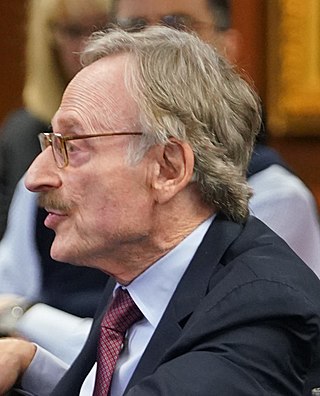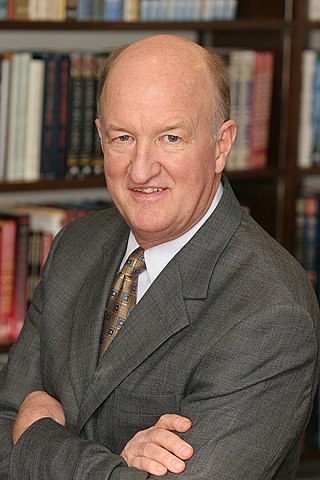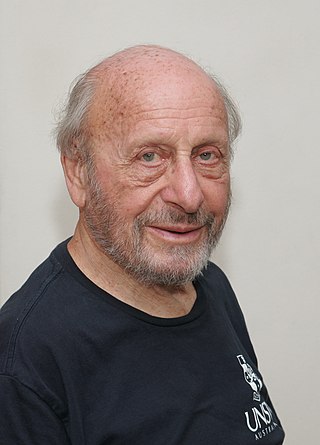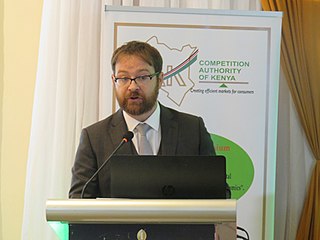
Bruno S. Frey is a Swiss economist and visiting professor for Political Economy at the University of Basel. Frey's research topics include Political economy and Happiness economics, with his published work including concepts derived from Psychology, Sociology, Jurisprudence, History, Arts, and Theology.
Media economics embodies economic theoretical and practical economic questions specific to media of all types. Of particular concern to media economics are the economic policies and practices of media companies and disciplines including journalism and the news industry, film production, entertainment programs, print, broadcast, mobile communications, Internet, advertising and public relations. Deregulation of media, media ownership and concentration, market share, intellectual property rights, competitive economic strategies, company economics, "media tax" and other issues are considered parts of the field. Media economics has social, cultural, and economic implications. Regular study of media economic issues began in the 1970s but flourished in the 1980s with the addition of classes on the subject at U.S. and European universities. The Journal of Media Economics began publishing in 1988, edited by Robert G. Picard, one of the founding fathers of the discipline. Since that time the field of inquiry has flourished and there are now hundreds of universities offering courses and programs in media economics. Other significant figures in the field have included Steven S. Wildman, Alan Albarran, Bruce M. Owen, Ben Compaine, Ghislain Deslandes, Stuart McFadyen, Gillian Doyle, Karl Erik Gustafsson, Lucy Küng, Gregory Ferrell Lowe, Nadine Toussaint Desmoulins, Achour Fenni, Amanda D. Lotz, and Stephen Lacy.

Geoffrey Martin Hodgson is Emeritus Professor in Management at the London campus of Loughborough University, and also the editor-in-chief of the Journal of Institutional Economics.

Michael Jay Boskin is the T. M. Friedman Professor of Economics and senior fellow at Stanford University's Hoover Institution. He also is chief executive officer and president of Boskin & Co., an economic consulting company.

Robert L. Kuttner is an American journalist, university professor and writer whose works present a liberal and progressive point of view. Kuttner is the co-founder and current co-editor of The American Prospect, which was created in 1990 as an "authoritative magazine of liberal ideas," according to its mission statement. He was a columnist for Business Week and The Boston Globe for 20 years.
Zoltan J. Acs is an American economist. He is Professor of Management at The London School of Economics (LSE), and a professor at George Mason University, where he teaches in the Schar School of Policy and Government and is the Director of the Center for Entrepreneurship and Public Policy. He is also a visiting professor at Imperial College Business School in London and affiliated with the University of Pecs in Hungary. He is co-editor and founder of Small Business Economics.

Mark Andrew Skousen is an American economist and writer. He currently teaches at Chapman University, where he is since 2022 a Doti-Spogli Chair in Free Enterprise at The George L. Argyros School of Business and Economics. He has previously taught at Columbia Business School, Mercy College, Barnard College, and Rollins College.

Daniel W. Bromley is an economist, the former Anderson-Bascom Professor of applied economics at the University of Wisconsin–Madison, and since 2009, Emeritus Professor. His research in institutional economics explains the foundations of property rights, natural resources and the environment; and economic development. He has been editor of the journal Land Economics since 1974.
Sanjaya Lall was a development economist and Professor of Economics at the University of Oxford. Lall's research interests included the impact of foreign direct investment in developing countries, the economics of multi-national corporations, and the development of technological capability and industrial competitiveness in developing countries. One of the world's pre-eminent development economists, Lall was also one of the founding editors of the journal Oxford Development Studies and a senior economist at the World Bank.

Geoffrey Colin Harcourt was an Australian academic economist and leading member of the post-Keynesian school. He studied at the University of Melbourne and then at King's College, Cambridge.

Franklin "Frank" J.B. Stilwell is an Australian political economist and Professor Emeritus. He is known for establishing, with Evan Jones, Gavan Butler, Margaret Power, Debesh Bhattacharya, Geelum Simpson-Lee and Ted Wheelwright, an independent political economy department at the University of Sydney. His research interests include theories of political economy, inequality, urbanization, and regional development, Australian economic policy and the nature of work. His textbooks on the subject are standard teaching material for all university students in Australia studying the field of Political Economy. Stilwell's contribution to heterodox economics makes him a noteworthy figure of the Australian New Left.
Inge Kaul was a German development economist who was an adjunct professor at the Hertie School of Governance, Berlin, and advisor to various governmental, multilateral and non-profit organizations on policy options to meet global challenges. She specialised in Global public goods, with much of her work looking at international cooperation financing, public-private partnerships, global governance, global issue diplomacy and UN system reform. She was the first director of UNDP's Human Development Report Office, a position which she held from 1989 to 1994, where with Mahbub ul Haq she led the team working on the Human Development Report. She was then director of UNDP's Office of Development Studies from 1995 to 2005. She was the author of numerous publications on international public economics and finance and was the lead editor of the books Providing Global Public Goods: Managing Globalization and The New Public Finance: Responding to Global Challenges.
Disequilibrium macroeconomics is a tradition of research centered on the role of disequilibrium in economics. This approach is also known as non-Walrasian theory, equilibrium with rationing, the non-market clearing approach, and non-tâtonnement theory. Early work in the area was done by Don Patinkin, Robert W. Clower, and Axel Leijonhufvud. Their work was formalized into general disequilibrium models, which were very influential in the 1970s. American economists had mostly abandoned these models by the late 1970s, but French economists continued work in the tradition and developed fixprice models.
Mass media regulations are a form of media policy with rules enforced by the jurisdiction of law. Guidelines for media use differ across the world. This regulation, via law, rules or procedures, can have various goals, for example intervention to protect a stated "public interest", or encouraging competition and an effective media market, or establishing common technical standards.

Thomas MacGillivray Humphrey was an American economist. Until 2005 he was a research advisor and senior economist in the research department of the Federal Reserve Bank of Richmond and editor of the bank's flagship publication, the Economic Quarterly. His publications cover macroeconomics, monetary economics, and the history of economic thought. Mark Blaug called him the "undisputed master" of British classical monetary thought.
Harald Bernard Malmgren is a scholar, ambassador, and international negotiator who has been senior aide to US Presidents John F. Kennedy, Lyndon B. Johnson, Richard Nixon, and Gerald Ford, and to US Senators Abraham A. Ribicoff and Russell B. Long, United States Senate Committee on Finance. He has acted as an advisor to many foreign leaders and CEOs of financial institutions and corporate businesses and has been a frequent author of articles and papers on global economic, political, and security affairs.
Graham Loomes, is a British economist and academic, specialising in behavioural economics. Since 2009, he has been Professor of Economics and Behavioural Science at the University of Warwick. He previously worked at the University of Newcastle, the University of York and the University of East Anglia.
Robert A. Blecker is an American economist who is currently a Professor in the Department of Economics at American University in Washington, DC. He is also Affiliate Faculty of the American University School of International Service and Center for Latin American and Latino Studies, and a research associate at the Economic Policy Institute and Political Economy Research Institute. His research has made contributions to the fields of post-Keynesian and neo-Kaleckian macroeconomics, open economy macroeconomics, international trade theory and policy, global imbalances and the U.S. trade deficit, the North American Free Trade Agreement, the economy of Mexico, export-led growth, and the theory of balance-of-payments constrained growth.

Peter Whelan is a professor of law at the School of Law, University of Leeds. A qualified New York Attorney-at-Law, Whelan conducts research in competition (antitrust) law and criminal law. He published the first full-length monograph on the criminal enforcement of competition law with Oxford University Press.
James Malcomson is a British-Irish economist. He is emeritus Professor of Economics at the University of Oxford and emeritus Fellow of All Souls College. He is a specialist in the fields of labour economics and contract theory.










